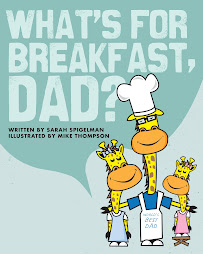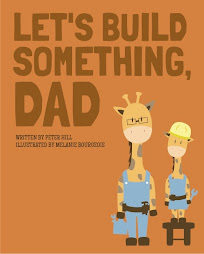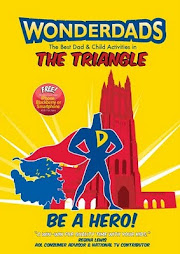Winter is coming on and Congress and the rest of us continue our spirited debate over healthcare reform - understandable considering what’s at stake and the slew of devils in the details. I’m all for taking our time and getting it right. There's plenty for conservatives and liberals alike to cringe about what's being proposed. But one point that continues to pop up among the Ann Coulters of the late night talk show circuit, however, rubs me the wrong way: the “Do you really want government running healthcare?” point, which is insulting.
Government isn’t the enemy.
Despite all the criticism and its shortcomings, government does a pretty good job with a vast array of services that we all have the luxury of taking for granted: defending us from harm; getting mail to us reasonably quickly and inexpensively; educating (all) our children - regardless of gargantuan disparities in culture, socio-economic status and myriad other challenges among its consumers; ensuring that our highways are safe enough to drive on (been to India lately?) and our water is clean enough to drink....
Consequently, I'm less fearful of government taking a more substantial role in healthcare than Ms. Coulter and some others are. For me, some things are just too important (the courts) or too big (natural disasters) to leave to the private sector alone. Healthcare falls into both categories.
Truth be told, I haven’t been any more impressed with the efficiency or customer service delivery of big corporations than I have with big government. Dealt with the automated operator at your local energy company lately? Or telephone provider? Or Blue Cross Blue Shield, for that matter? Before you finally decide you’ve been on hold long enough and hang up, it will sound a lot like bureaucracy. But I got my North Carolina driver license reinstated last week at the much-maligned DMV just fine despite big budget cuts and staff reductions.
I’ve worked closely alongside a number of Departments of Social Services (DSS) throughout my career – an agency whose reputation epitomizes the ineffectiveness of government. But the problem with every DSS (and most other public human service agency) I've known is lack of funding. Not leadership, innovation, creativity, efficiency, motivation. Unlike private companies, public welfare agencies can’t turn away customers. Since abused children and indigent adults have never been much of a national priority, funds are perennially inadequate and case loads among social workers swell to unmanageable numbers. If you think DSS does a shoddy job, you should lobby for more funding.
If the recent scandals by scoundrels on Wall Street taught us anything, it should be that the private sector isn’t always the knight-in-shining-armor answer to all our problems that the anti-government throng would want us to be believe. I’m at least as suspicious of the motives and intentions of big business as I am of big government. The public and private sectors are equally susceptible to greed and gluttony and mismanagement and incompetency....
But here’s the honest truth: left to the private sector, our healthcare system has failed us. Acknowledging this reality doesn’t make me a socialist.
Free-market capitalism (undeniably the greatest economic system in the world) has one function: to make as hefty a profit as possible and fleece the pockets of its shareholders. That's why there's such a disconnect when it comes to reconciling a system with dollar signs rolling around its eyes with ensuring the health of a nation. That's why we don't leave the courts to private companies, for example. The point of court isn't to make money. Consequently, it falls beyond the scope of a for-profit company. Same argument for the healthcare industry. Necessary functions of a civilized society which don’t, by nature, generate revenue nor follow the traditional laws of supply and demand should be left to government and the nonprofit sector.
Government isn’t the enemy.
Consider: only government had the wherewithal to dam the mighty Colorado and subsequently bring life to the wild west or connect all corners of the country through its Interstate highway system or to take on Governor Wallace when he was standing in the doorways of the University of Alabama to keep blacks from entering in or to distribute enough flu shots to ward off a pandemic or keep lead out of the paint on the walls of the schools where my children sit everyday...
Certainly, government has its flaws. It will never be the only answer. When it fails, we should all call it to task and insist it work better for us. The federal government’s response to Hurricane Katrina was disgraceful. We learn from our mistakes and improve – for the sake of victims of the inevitable next natural disaster. But government shouldn’t just turn a blind eye and hope others step up to the plate. Collectively, as a people, we have a responsibility to lend a hand to those in need. We can't all drop everything and rebuild houses on the gulf coast. But, we all pay taxes and, for most of us, that's the contribution we can make.
Nor should we categorically dismiss a public option, for example, because government isn't perfect. That’s a slap in the face of all of us who participate in its process by paying taxes, electing officials and writing letters to our senators. And it seems like a contradiction when such rhetoric comes from the party that most likes to drape itself in the flag and stake its claim to patriotism.
Government isn’t the enemy. We are the government. Call me naive, but I just happen to believe that we the people are capable of great feats and our aspirations should be mighty. Perhaps healthcare reform will be the Hoover Dam of my generation.
27 November 2009
Subscribe to:
Posts (Atom)
















